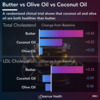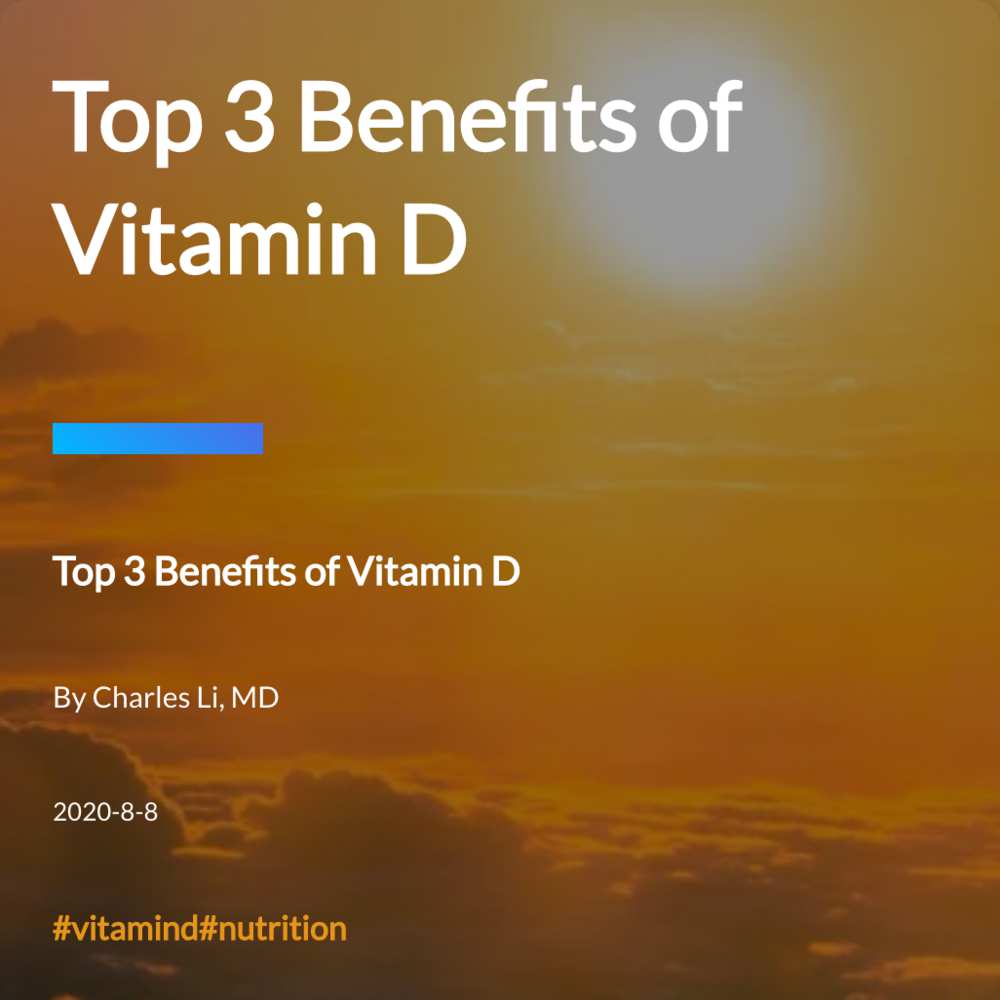
Background
what is it?
where to get it
Key Facts
- typefat soluble
- sourcediet, skin
- other namescalciferol, cholecalciferol
Appearance

Use List

bone growth

calcium

immunity

the sun
your body can create vitamin D with assistance from the sun

diet
some foods such as milk and fish contain vitamin D

supplements
Vitamin D can also be obtained from dietary supplements

Key facts: Vitamin D plays a key role in bone growth, calcium absorption, and your immune system. Unlike some vitamins, your body can produce it with the help of the sun. Sunlight helps catalyze a key reaction in the production of Vitamin D.
Benefit #1

Multiple Sclerosis
Multiple sclerosis is a debilitating disease in which your own immune system attacks your nerves. Some studies have shown that people with more Vitamin D in their bloodstream tend to have a lower risk of developing Multiple Sclerosis.
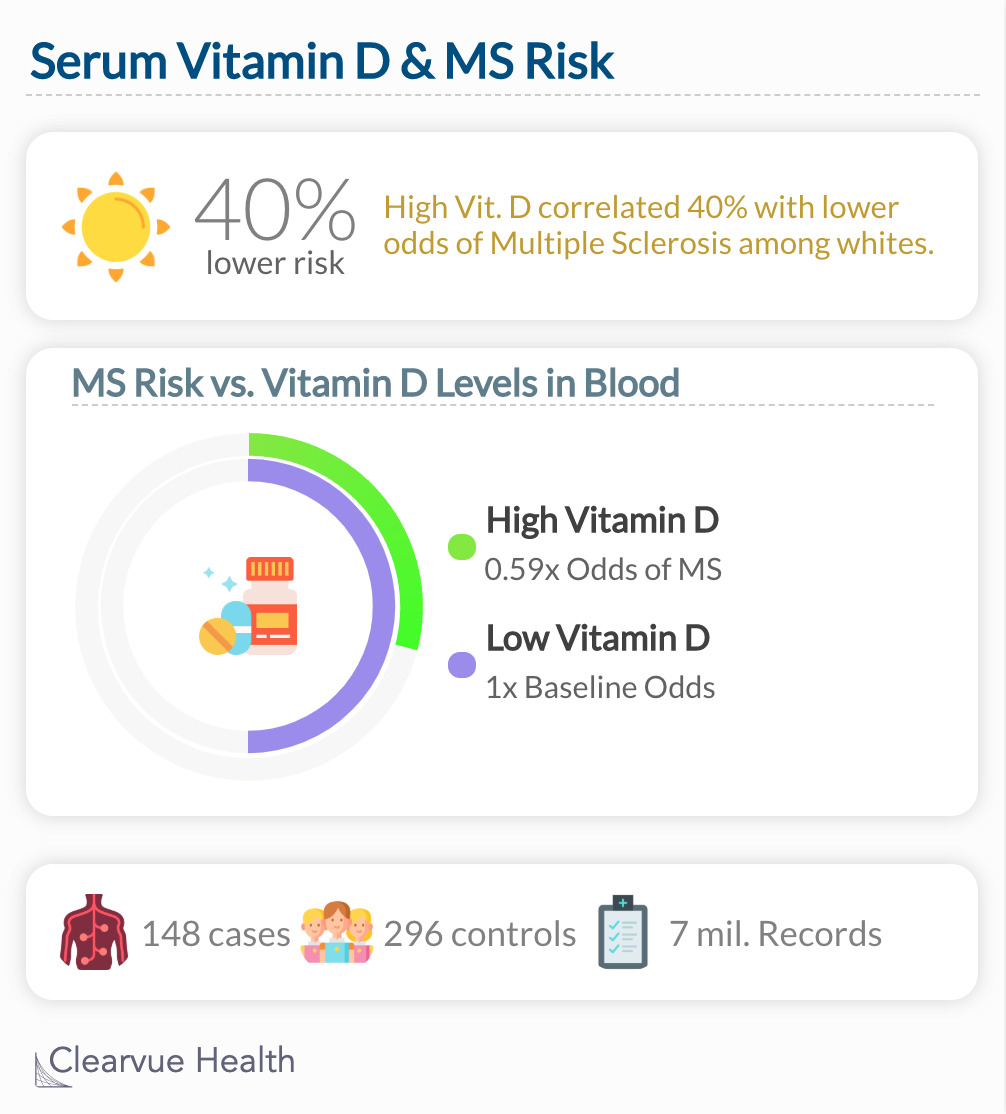
Data Source
"Our results converge with a growing body of evidence supporting a protective role for vitamin D in MS development. "
Vitamin D Benefit #2

Vitamin D Benefits the immune system
Studies have shown surprisingly strong evidence that Vitamin D can help strengthen your immune system, particularly against the flu.
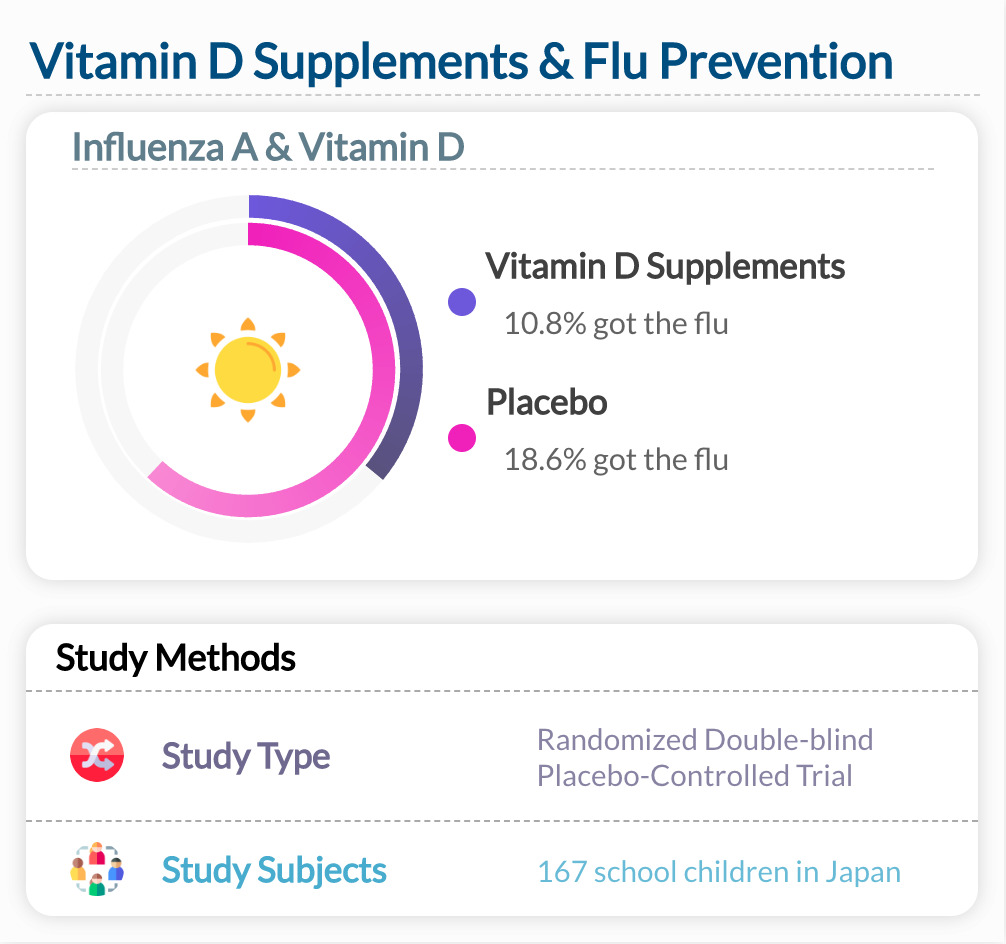
A study found that students were just over half as likely to get Influenza A if they were given vitamin D supplements compared to students who received a placebo. This study was conducted in Japan and was designed to investigate whether Vitamin D supplements could reduce the incidence of the flu among schoolchildren. Only Influenza A was studied.
Data Source
"In conclusion, our study suggests that vitamin D3 supplementation during the winter season may reduce the incidence of influenza A. This effect was prominent in specific subgroups of schoolchildren. Moreover, asthma attacks were also prevented by vitamin D3 supplementation. "

Vitamin D & Respiratory Tract Infections
Vitamin D also appears to potentially reduce your risk of developing respiratory tract infections. These include COVID-19, the common cold, and the flu.
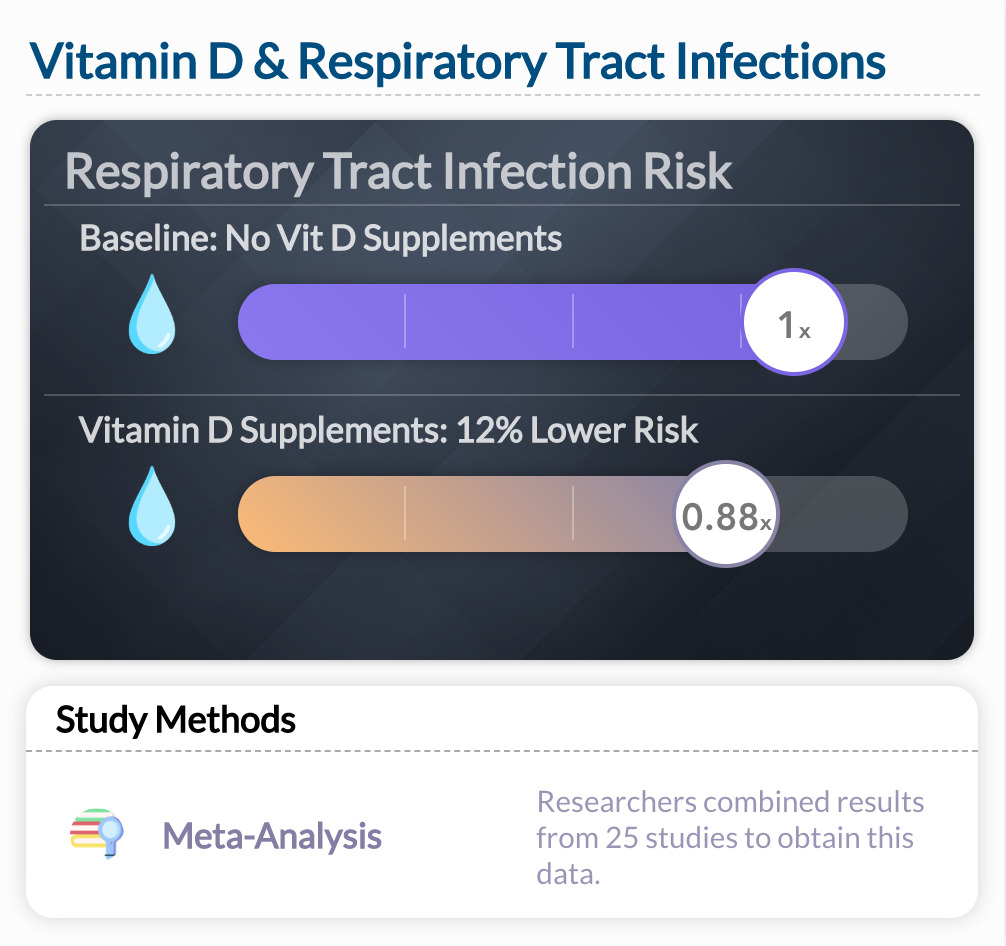
Data Source
"Vitamin D supplementation was safe and it protected against acute respiratory tract infection overall. Patients who were very vitamin D deficient and those not receiving bolus doses experienced the most benefit."
Vitamin D Benefit #3

Vitamin D & Cancer Risk Benefits
Studies have shown evidence that Vitamin D may help reduce your risk of dying from cancer, though scientists are still not completely sure how. In a meta-analysis of 10 studies, researchers estimated that patients who were given Vitamin D had a 13% lower risk of dying from cancer. Vitamin D did not lower your risk of getting cancer.
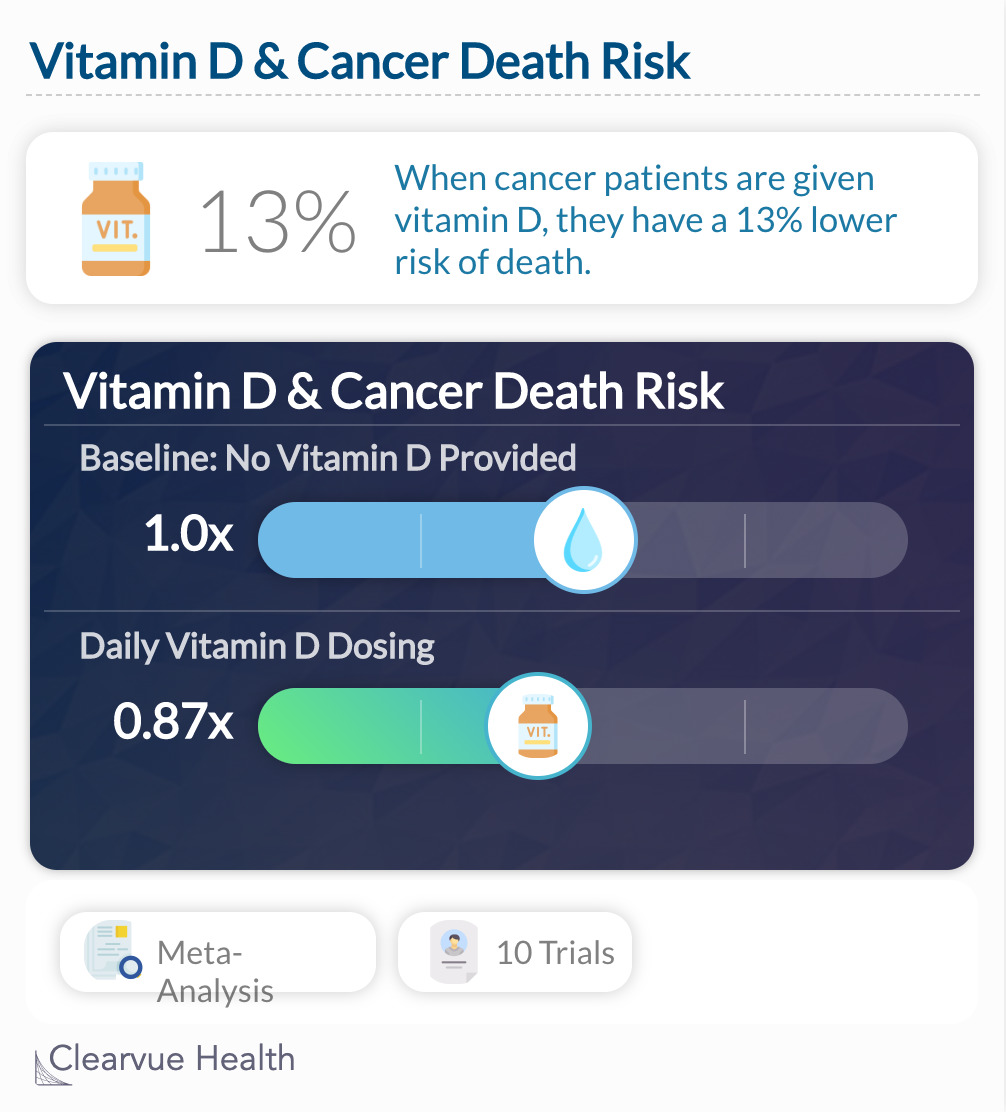
Data Source
"In an updated meta-analysis of RCTs, vitamin D supplementation significantly reduced total cancer mortality but did not reduce total cancer incidence."

Why this matters
Cancer is one of the biggest killers in the United States. Even a small decrease in your risk of dying from cancer actually can lead to a significant increase in your overall life expectancy, as shown in the study below.
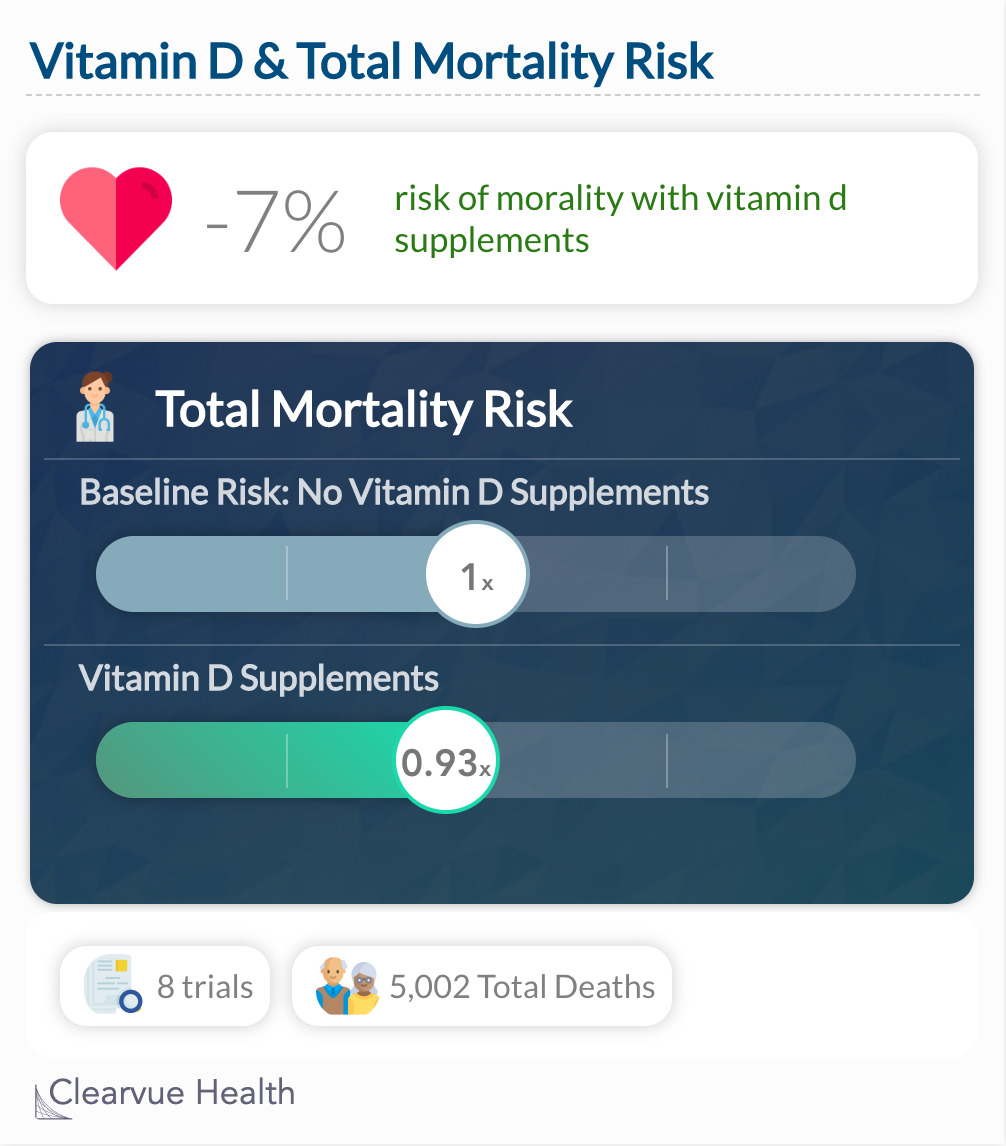
Vitamin D has been associated with a significantly lower risk of dying at any given time. Much of this reduction in risk of death is driven by Vitamin D's effect in reducing risk of cancer death.
Data Source
"Corresponding to the 13% reduction in cancer mortality, there was a statistically significant 7% reduction in total mortality in our meta-analysis where cancer death (n = 1591) accounted for 33% of total death (n = 4872)"
Unproven Benefit #1

Vitamin D & Heart Disease
The evidence behind Vitamin D and heart disease is a little less clear. Those who have enough Vitamin D in their systems have a lower risk of heart disease. However, clinical trials have so far turned up negative. This suggests that people who eat balanced diets may have a lower heart disease risk, but taking Vitamin D supplements doesn't necessarily help by itself.
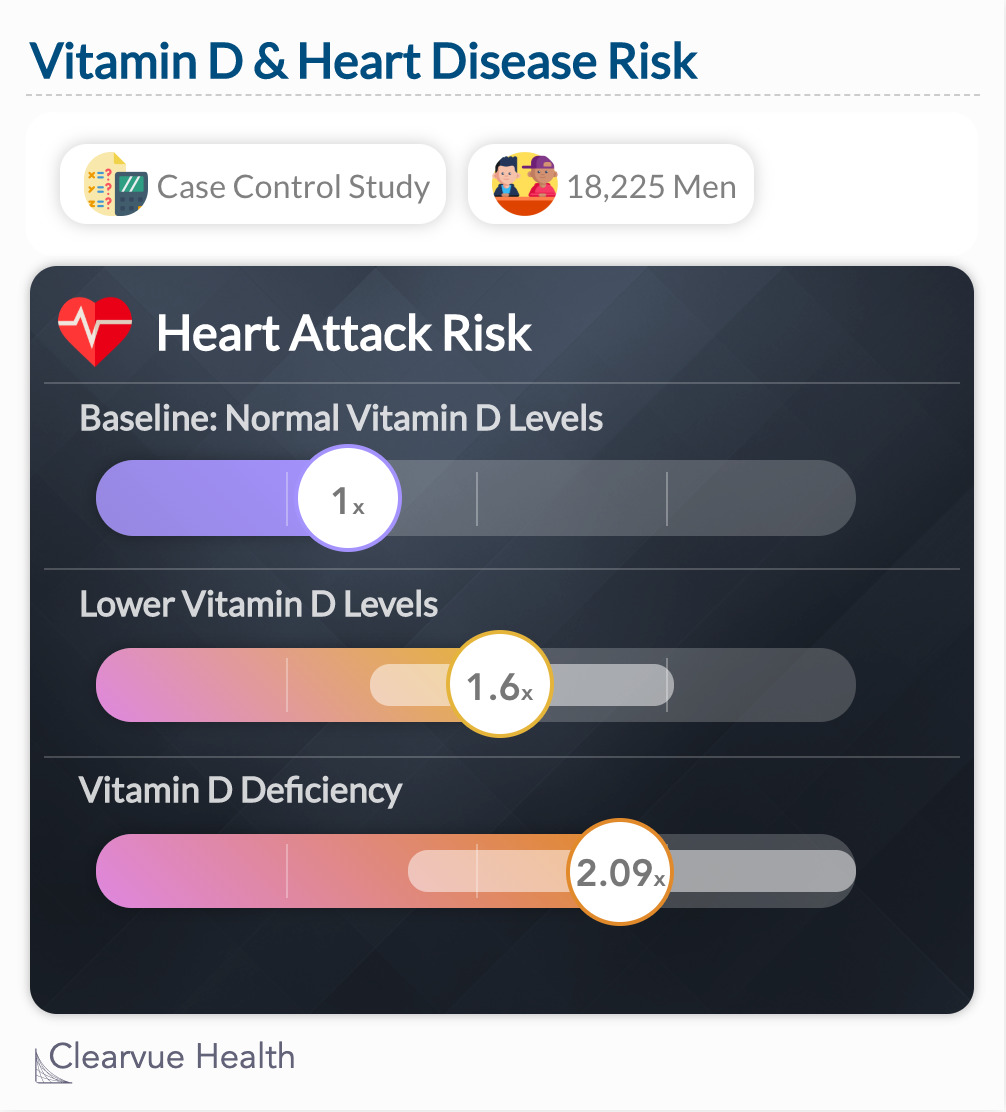
Vitamin D deficiency was correlated with a doubling of heart attack risk compared to those who had normal levels of vitamin D. Having a mild deficiency was similar associated with a 1.6x heart attack risk. All results were statistically significant.
Data Source
"Low levels of 25(OH)D are associated with higher risk of myocardial infarction in a graded manner, even after controlling for factors known to be associated with coronary artery disease."

Vitamin D Clinical Trial
While the study above showed that Vitamin D correlated with better heart health, the clinical trial below was unable to replicate this with Vitamin D supplements.
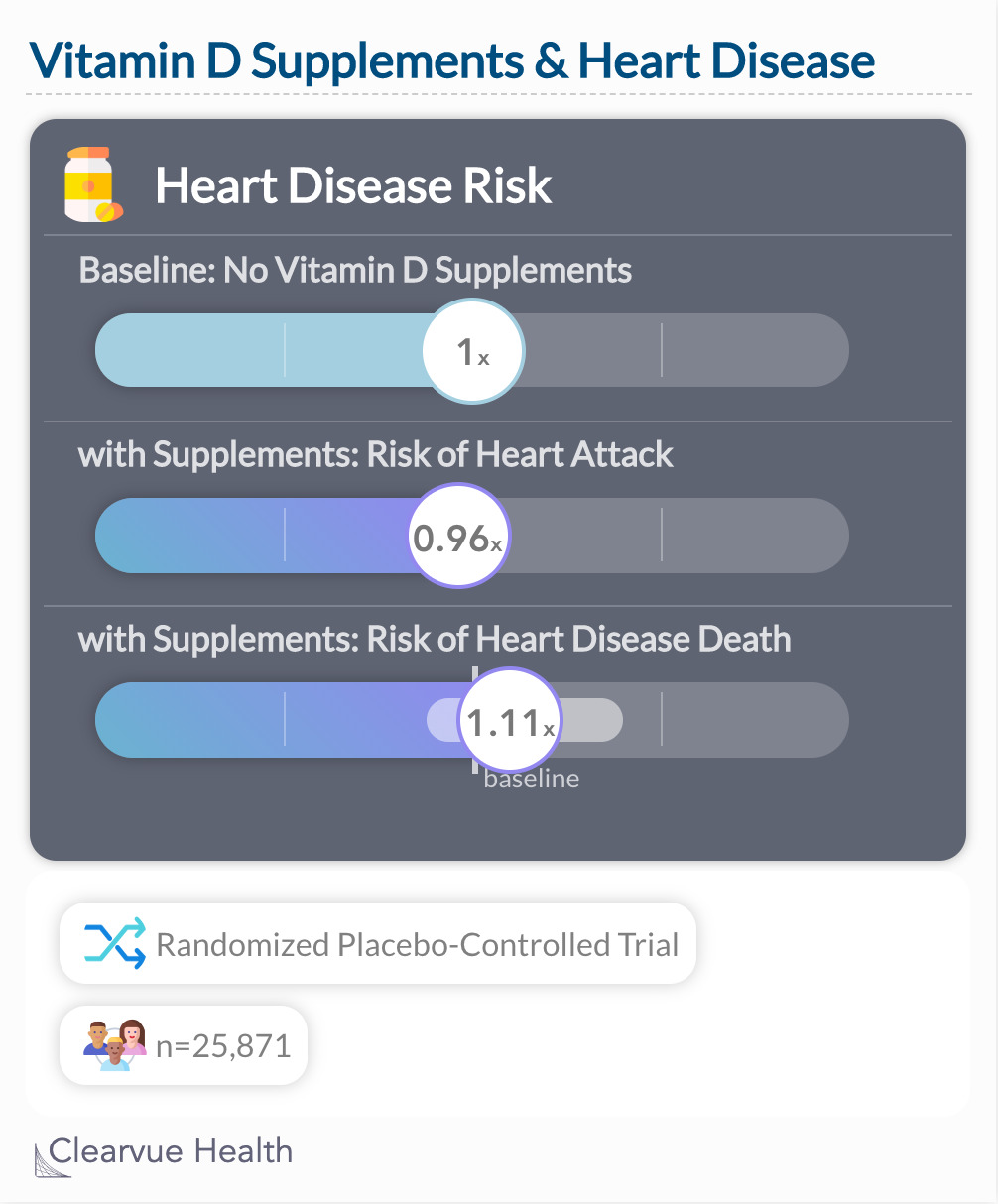
Data Source
"There were no significant differences between the two groups with respect to the cumulative incidence of major cardiovascular events "
Unproven Benefit #2

Vitamin D & Cancer Risk
While the studies above show that Vitamin D may reduce your risk of dying from cancer, studies have not found convincing evidence that Vitamin D can reduce your risk of getting cancer in the first place.
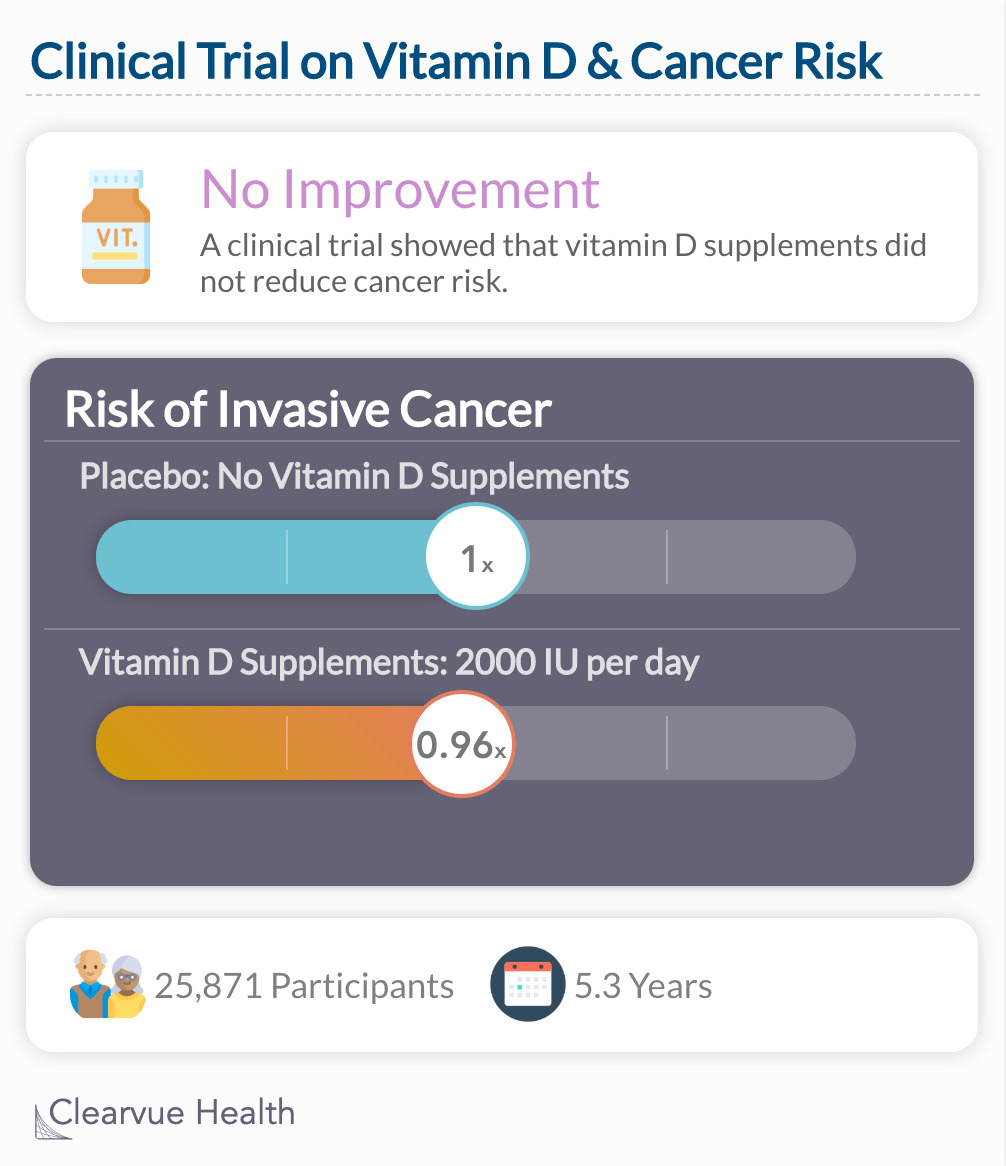
A clinical trial showed that vitamin D supplements did not reduce cancer risk. Researchers studied 25,871 participants over 5.3 years. Participants were randomized to receive either a placebo or a daily vitamin D supplement.
Data Source
"No significant differences between the two groups were observed with regard to the incidence of breast, prostate, or colorectal cancer. "

#nutrition
Scroll for more ->
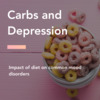

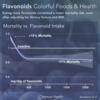
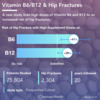
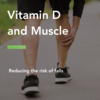
#vitamind
Scroll for more ->

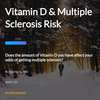

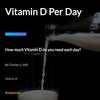

#new
Scroll for more ->













